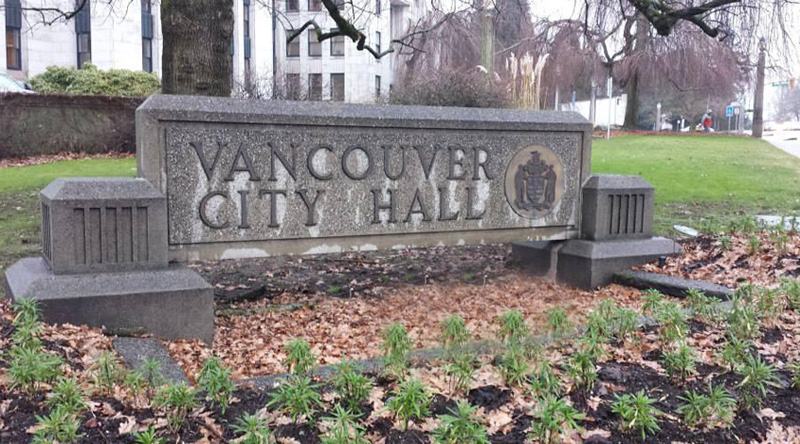
Jul 10, 2022: Residents tell Council: the Vancouver Plan is “ultimately flawed”
More than 80 residents addressed Council at the July 6 Standing Committee meeting on the Vancouver Plan. The vast majority were highly critical of the city-wide draft proposal, and certain themes were heard repeatedly: the Plan is “ultimately flawed,” “autocratic,” lacks neighbourhood involvement, and will not solve the housing crisis. One speaker neatly summarized her objections to the Plan, saying it will “destroy all existing neighbourhoods.
“This isn’t a plan, it’s a blueprint for destruction,” said local resident Judy Osburn, who, like several other speakers, rebuked City staff for not labelling the names of individual neighbourhoods in the Plan map, and for excluding neighbourhood voices.
Some Councillors will be making amendments and are expected to vote on the Plan on July 22, the final meeting before the summer break. The meeting begins at 9:30 am. Read the Report.
The Plan aims to house 260,000 additional residents over the next 30 years, bringing Vancouver’s total population to about 920,000 people. The Vancouver Plan goes far beyond the Broadway Plan, which encompasses 500 city blocks following the Broadway Subway line. The Vancouver Plan is a masterplan for the entire city, and, if approved, will become Vancouver’s Official Community Plan. It calls for heavy densification across neighbourhoods by adding mixed-use towers as high as 40 storeys near subway stations, and proposes new neighbourhood types—villages, neighbourhood centres, rapid transit centres, and city centres—to replace the city’s historically recognized neighbourhood names.
City staff call it “a visionary, long-range land use plan to create a more livable, affordable and sustainable city for everyone.” Head Planner Theresa O’Donnell said the Vancouver Plan nullifies all official neighbourhood plans, which she described as being out of date and “insufficient to handle today’s challenges.”
But at the July 6 Council meeting, neighbours, UBC urban design and applied ethics professors, and former City planners could not have disagreed more strongly.
Answering Cllr. Colleen Hardwick’s question whether he agreed with staff’s assertion that existing neighbourhood plans are out of date, Mark Battersby, former Professor of Philosophy at Capilano University, consultant, and author of the book “Is that a Fact?” said “It seems unfathomable to me.” Battersby and other Kitsilano residents helped create the much-lauded Arbutus Walk in Kitsilano on the former Carling O’Keefe Brewery site. “If you want change, meet with neighbours,” he said. “We fought for years [to create this residential site], and the result is beautiful.”
Patrick Condon, UBC Professor of Urban Design and an outspoken critic of the Plan, told the Mayor and Councillors that he was “deeply saddened” by the Vancouver Plan which he argued should have put housing affordability front and centre. And he criticized the lack of details on how affordability will be achieved. “There is nothing [in the Plan] about how it will happen.”
One of the many flaws of the Plan,” Condon said, is City planners’ and Council members’ assumption that adding new supply lowers the cost of housing. Condon said that since the 1980s Vancouver has added more housing than any other major North American city and it is still the most expensive place to live. “We tried adding more housing and it didn’t work,” he said. He told Councillors that if they want to help the many residents who are leaving the city due to high rents, they should insist that, going forward, at least 50 percent of development be made available to average wage earners.
Some supporters said they were “tepidly” in support of the Plan, but scolded staff and planners for taking too long to approve it. Supporters said the Plan doesn’t go far enough and wanted to see even more density in the City.
One speaker blamed Mayor Kennedy Stewart for causing a vast divide among citizens, and chided him for a story he wrote in The Daily Hive. In his op-ed Stewart writes to renters living along the Broadway Corridor:
“…It’s not surprising the debate over the Broadway Plan has heightened those feelings of anxiety for many renters living along the new subway. And it’s even less surprising that a handful of well-to-do homeowners are preying on those fears to stop much-needed affordable housing, to pull up the drawbridge and make Vancouver a city only for them and their wealthy friends.”
Randy Helten of CityHallWatch warned Council that if they approve the Vancouver Plan, they would be opening the door to an even greater loss of public influence on neighbourhoods. This is because Housing Minister David Eby is in the process of introducing legislation that would eliminate the need for public hearings on rezonings and developments if they conform to the Vancouver Plan, the first citywide official community plan. Read Helten’s insightful story here.
CityHallWatch publishes UBC Professor Scott Hein’s letter to Council regarding the Vancouver Plan.
There is still time to write to Council with your concerns. You can watch the
upcoming live July 22 video broadcast here.



No Comments